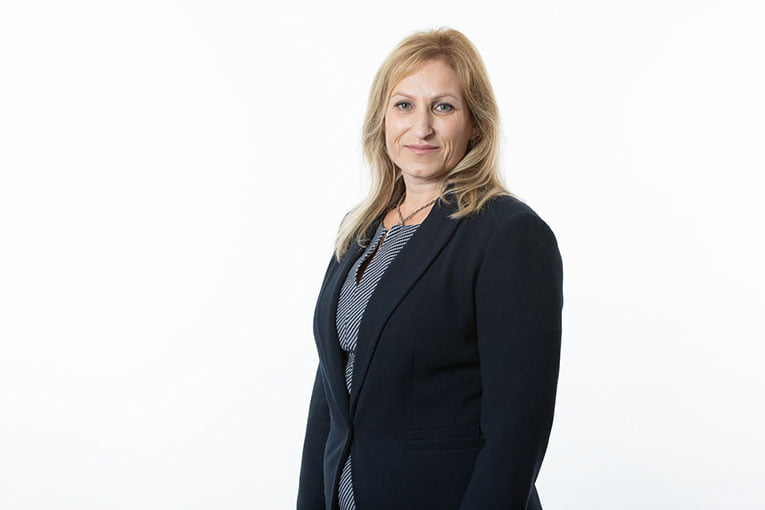Roz Cawood (pictured), managing director of Property Finance at StreamBank, sits down with two specialist brokers – Matthew Dilks of Clever Lending and David Coleman of Positive Lending – to explore what makes exceptional service, how tech is evolving the market, and why title insurance can make or break a deal.
Roz Cawood (RC): As competition in the bridging market continues to heat up, what does good service mean to you? What tangible difference has Consumer Duty made?
Matthew Dilks (MD), commercial and bridging specialist, Clever Lending: In bridging, service is all about pace and commitment. It’s not enough to be fast at the start. Many lenders still slow down between valuation and completion. That’s where delays creep in. Consumer Duty has definitely raised the bar.
There’s more focus now on whether the product genuinely fits the client’s needs, especially around exit strategy and affordability. It’s brought welcome transparency around costs and risk, and even some unregulated lenders are beginning to follow suit. That shift is helping clean up the image of the industry.
David Coleman (DC), head of sales, Positive Lending: Speed still matters, but good service now means consistent communication, pragmatic decisions and proper relationship management. Consumer Duty has changed the lens we all use. It’s about outcomes, not just execution.
We’ve seen lenders tightening up documentation, offering better product fit, and walking away from deals that don’t stack up ethically. StreamBank is a great example. They’ve really embraced Consumer Duty, working closely with us to make sure borrower needs are properly understood without slowing things down.
RC: Has the evolution of lender technology like automated valuations or digital submissions improved your experience as a broker?

MD: AVMs have definitely helped. They save clients money and keep things moving. But submission portals are hit and miss. Some are clunky, and email is still more efficient.
A well-built portal can speed everything up, but too few lenders have invested enough in getting it right.
DC: There’s been a big leap forward in digitisation, and the benefits are real. Faster processing, fewer admin delays and better clarity from enquiry to offer. AVMs save time and cash. But tech alone doesn’t close deals.
It’s the blend of strong infrastructure and knowledgeable people that makes the difference.
RC: What could lenders do better?
DC: Flexibility is key. Bridging cases are rarely textbook. If lenders can take a step back and understand the full picture rather than sticking rigidly to a rulebook, they’ll win more deals.

We had an auction case recently with a tight deadline and an unconventional property. The lender acted quickly, made pragmatic decisions and got it over the line on time. That responsiveness matters.
MD: The best lenders are proactive when things go wrong. Too often we’re left suggesting solutions, when the lender should be taking the lead.
In a better example, one case involved title issues and a valuation delay. Their underwriter stepped in, arranged an AVM and secured approval internally. Her approach kept the deal moving when others might have stalled. That’s what sets a lender apart.
RC: When you call in to discuss a case, what value does the human touch offer, whether from BDMs or case handlers?
MD: It’s huge. A short phone call can resolve more than a string of emails. When you can speak directly with an underwriter or a switched-on BDM, you get clarity, direction and pace. That kind of access turns a good lender into a great one.
DC: Relationships are everything. The best BDMs know how we work. They understand our process and we trust theirs. That shared understanding helps cut through complexity quickly. It’s not just about picking up the phone. It’s about speaking to someone who gets it.
RC: What impact has title insurance had on your cases? Can you share an example where it made the difference?
DC: It’s a brilliant tool when used well. In one case, a semi-commercial property had a right of access issue that could have derailed the whole deal. Title insurance gave the lender the comfort they needed. We completed on time, no drama.
MD: Title insurance takes the pain out of legal holdups. I had a case where part of the garden wasn’t on the registered title. A policy was put in place to cover any future dispute. Without it, we’d still be waiting. With it, we completed without delay. It’s a vital solution in the bridging toolkit.
RC: What advice would you give lenders looking to stand out? Are any doing that already?
MD: Clear communication is everything, particularly access to people who can make decisions. Lenders who offer AVMs and desktop valuations at higher LTVs are also ahead of the curve. StreamBank ticks both those boxes. They’re not trying to be everything to everyone. They know their niche and execute it well.
DC: Standout lenders listen first. The ones who take the time to understand each case rather than applying blanket rules will always have the edge. It’s the lenders that engage with us early, assess the commercial reality and suggest practical paths forward.



